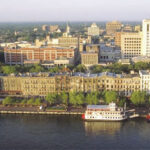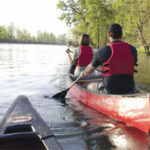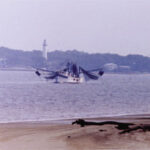Savannah has survived devastating fires, powerful hurricanes, rampant epidemics, several wars and destructive insects to become one of America-s most beautiful cities. Georgia-s first city, Savannah was established in 1733, west of where the river of the same name meets the Atlantic Ocean, by Gen. James Oglethorpe. … [Read more...] about Savannah, Georgia
Augusta, Georgia
Augusta is best known for hosting the Masters. Each April, as the world watches, the best golfers from around the globe challenge the venerable course at Augusta National Golf Club, vying for the distinct honor of wearing the coveted green jacket presented to the champion. But Augusta is more than just the home of … [Read more...] about Augusta, Georgia
Jekyll Island, Georgia
Jekyll Island, one of the Golden Isles near Brunswick, Georgia, qualifies to be called unique. Unlike many island communities, where condos and homes are packed as tightly as possible, Jekyll has retained its natural beauty. By law, only 35 percent of the island can be developed, leaving nearly two thirds of Jekyll … [Read more...] about Jekyll Island, Georgia



